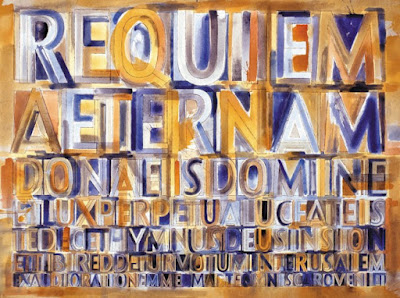JEOPARDY - 6TH GRADE RETREAT ACTIVITY
MAY 26, 2017

STUFF IN CHURCH
100 These long wooden benches sound like they might smell.
What is a pew.
200 This podium is where both Old and New Testament are read from.
What is the ambo.
300 He walks and stands on the priest’s right side.
Who is the deacon.
400 This is where the transubstantiated hosts are kept.
What is the tabernacle.
500 Their pictures adorn the walls and windows in a church.
Who are the saints.
MIDDLE AGES
100 This medieval saint has a church named after him in Napa.
Who is St. Thomas Aquinas.
200 Near the end of the middle ages, he discovered America.
Who is Christopher Columbus
300 An argument in the middle of the middle ages split the Church this way.
What is east and west.
400 In the late middle ages, 7 popes lived in this country (not Italy.)
What is France.
500 This multi-national organization lasted through the middle ages until 1806.
What is the Holy Roman Empire.
BIBLE BABBLE
100 This is the language of most of the Old Testament.
What is Hebrew.
200 The New Testament is in this language.
What is Greek.
300 The book of the Bible where the story of the Tower of Babel is mentioned.
What is Genesis.
400 Arguments among Hebrew and Greek Christians led to their ordination.
What are the first deacons.
500 The day the Apostles left the upper room speaking many languages.
What is Pentecost.
POPE-ULAR PEOPLE
100 Three popes with this name lived in the last century.
What is Pius.
200 He was pope when you were born.
Who is John Paul II.
300 Where the current pope is from this country.
What is Argentina.
400 The pope between John Paul II and Francis. He’s still alive.
Who is Benedict XVI.
500 The pope who called the Second Vatican Council.
Who is John XXIII
MASS CHAOS
100 Do this before you sit down, or when you cross in front of the tabernacle.
What is genuflect.
200 The three persons mentioned in the Sign of the Cross.
Who are the Father, Son, and Holy Spirit.
300 When you smell this at a solemn Mass, don’t call the fire department.
What is incense.
400 This is carried at the front of processions going in and coming out of Mass.
What is the (processional) cross (crucifix).
500 The two times the bells are rung at Mass.
What are at the elevations.
ROMAN NUMBERS
100 One.
What is “I”.
200 Five.
What is “V”.
300 Ten.
What is “X”.
400 One Hundred.
What is “C”.
500 One Thousand.
What is “M”.
MAMMA MIA!
200 Jesus’s Mother.
Who is Mary.
400 Mary’s cousin, also John the Baptist’s mother.
Who is Elizabeth.
600 She is called “mother of the living,” and was Cain and Abel’s mother.
Who is Eve.
800 King David’s ill-met wife, also King Solomon’s mother.
Who is Bathsheeba.
1000 She asked for her son’s to sit with Jesus in glory. Name the sons.
Who are James and John.
MODERN TIMES
200 The pastor of St. Apollinaris.
Who is Fr. Donahue.
400 The bishop of our diocese.
Who is Robert Vasa.
600 The current pope.
Who is Francis.
800 The year that pope was elected.
What is 2013.
1000 The number of popes in the 21st century.
What is three (3).
LOCAL DIOCESES
200 The diocese we live in.
What is Santa Rosa.
400 The archdiocese south of us.
What is San Francisco.
600 The diocese east of us.
What is Sacramento.
800 The diocese south east of us.
What is Oakland.
1000 The diocese west of us.
What is Honolulu.
KNOW THE ANSWER
200 The answer to “The Lord be with you.”
What is “And with your spirit.”
400 The answer to “Through Christ our Lord.”
What is “Amen.”
600 The answer to “Christ have mercy.”
What is “Christ have mercy.”
800 The answer to “Lift up your hearts.”
What is “We lift them up to the Lord.”
1000 The answer to “Go in peace.”
What is “Thanks be to God.”
AMEN.
200 The Lord’s prayer.
What is the “Our Father.”
400 The Angelic salutation.
What is the “Hail Mary.”
600 This prayer starts with “I believe.”
What is the Creed.
800 This prayer, called a doxology, mentions the Father, Son, and Holy Spirit.
What is the Glory Be.
1000 This prayer asks an archangel to “defend us in battle.”
What is the St. Michael prayer.
CATHOLIC COUNTRIES
200 The country housing the image of Our Lady of Guadalupe.
What is Mexico.
400 This country surrounds the Vatican.
What is Italy.
600 One of the two Catholic countries on the Iberian Peninsula.
What is Spain (or Portugal).
800 The country with the largest Catholic population in the world.
What is Brazil.
1000 The continent has the least Catholics on the planet.
What is Antarctica.
ST. APOLLINARIS
FINAL This modern-day country is the birthplace of St. Apollinaris.
What is Turkey. (or Antioch, or Roman Province of Syria.)




































